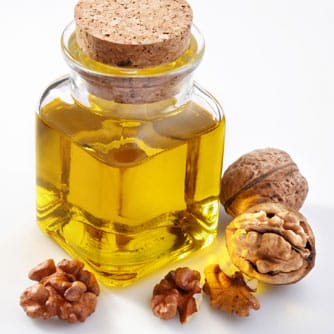It has been known for some time that eating walnuts can help to lower cholesterol levels, however new research suggests that they may also convey other cardiovascular benefits. Penny Kris-Etherton, Distinguished Professor of Nutrition at Penn State, and colleagues gave 15 participants with elevated blood cholesterol 1 of 4 treatments: 85 g of whole walnuts, 6 g of skin, 34 g of defatted nutmeat, or 51 g of walnut oil. The researchers evaluated biochemical and physiological responses in the participants before the treatments were administered and again 30-minutes, 1-hour, 2 hours, 4-hours, and 6-hours after administering the treatments. The process was then repeated for each of the remaining 3 treatments. Results showed that consumption of walnut oil helped to reduce cardiovascular risk by preserving the function of endothelial cells, the cells that line blood vessels. The researchers also found that walnut oil enhanced the ability of HDL cholesterol to remove excess cholesterol from the body. “Our study showed that the oil found in walnuts can maintain blood vessel function after a meal, which is very important given that blood vessel integrity is often compromised in individuals with cardiovascular disease,” said Claire Berryman, graduate student in nutritional sciences, at Penn State. “Implications of this finding could mean improved dietary strategies to fight heart disease.” Walnuts and walnut oil are a rich source of alpha-linolenic acid, gamma-tocopherol, and phytosterols.
Eating Walnuts Reduces Cardiovascular Risk
CE Berryman, JA Grieger, SG West, C-Y O Chen, JB Blumberg, GH Rothblat, S Sankaranarayanan, PM Kris-Etherton. Acute consumption of walnuts and walnut components differentially affect postprandial lipemia, endothelial function, oxidative stress, and cholesterol efflux in humans with mild hypercholesterolemia. J Nutr. 2013 Apr 24. [Epub ahead of print]
RELATED ARTICLES




